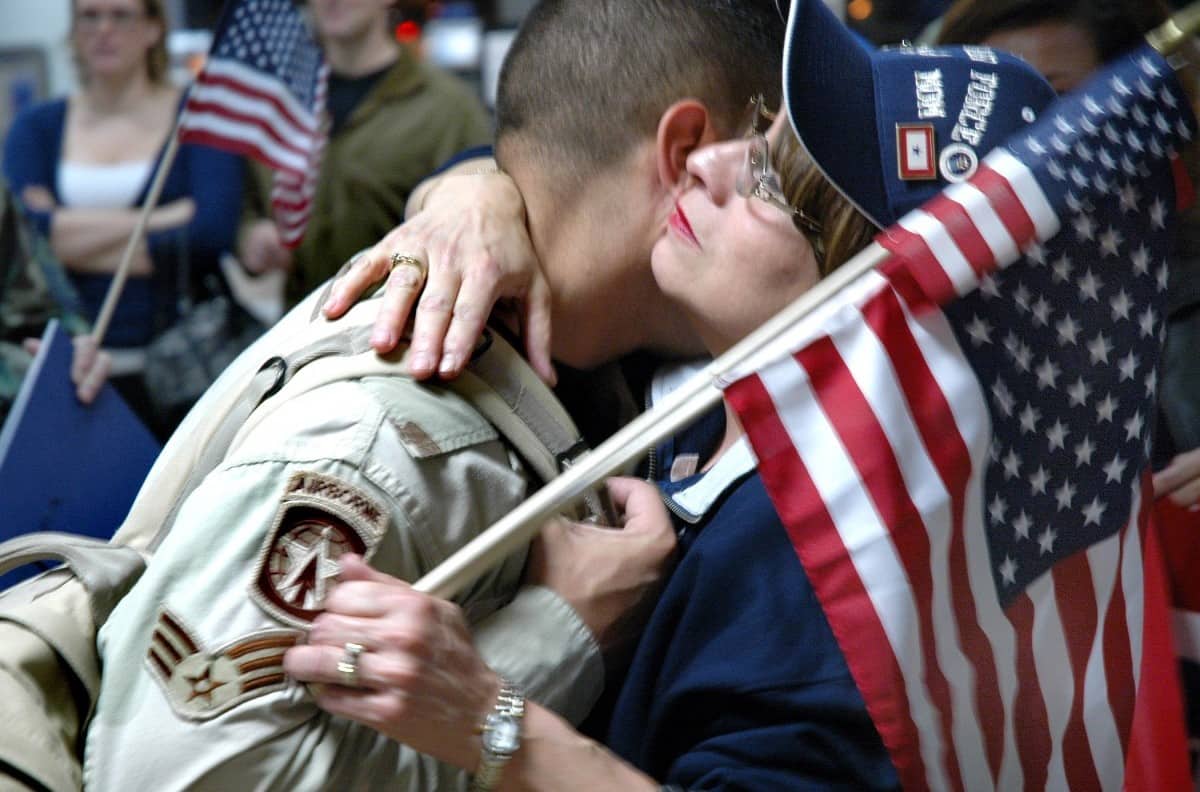
What is Your Residue?
There is this underlying sentiment that operators in the military, medicine, and law enforcement must give up their whole being–life and soul–for service. One of the first steps in how to deal with PTSD is refuting the assumption that you are either a survivor or a victim.
Instead, how about appreciating the extraordinariness of your life rather than wallowing in self-pity and guilt? Of course, the memories of your past life in service – not all of them beautiful – are never going to leave entirely.
Coping with the residues
It is difficult, if not impossible, to want to entirely delete those formative chapters in your life as if they never happened. Instead of being in denial, you have to generate that internal audacity to accept them and deal with it.
Famous Hollywood actor, Tom Hardy, admits that we carry residue from past experiences that are relatively difficult to discard entirely.
Behind every exceptional performance from Tom Hardy on screen is a determined actor that wholly immerses himself in the world of the character he represents. This is how he manages to disperse such naturalness and grace on his roles in movies.

Of course, this comes at a steep price, given that he is expected to magically discard that assumed personality at the snap of a finger, moving on to the next role promptly. Definitely, Tom strives to do that, but there is residue – tiny fragments of the previous character–that stays behind.
Tom emphasizes the importance of processing these residues. They could accumulate over time as an actor moves from one role to another, ultimately triggering situations where actors are plagued with multiple sophisticated personalities.
The world expects operators to transition too quickly
People often expect an actor to switch on a new personality that easily gets the job at hand done and then to simply revert back to their jolly old self. But very few talk about the very process of transitioning back to that former life.
This is the same with operators. The world expects them to quickly transition back to that jolly family man or a loving mother, quickly fitting into civilian circles. This is even though they have lived the bulk of their life in a different “planet” – perpetually in close quarters with violence.
Hard as you try, there must be residues from your time in service: the beautiful laughter with your squad, those epic moments of brotherhood and sacrifice, the heartbreaking losses of beloved comrades, and yes, those scenes of destruction.
Trying to mop every drop of them up with your heart can be futile. Instead, you need to process them in the right way. This is one of the most effective ways on how to deal with PTSD.
You must learn to channel these residues the right way and extract positive energy from them instead of wastefully trying to hurl them off your mind. This is making lemonade out of the lemon fate throw at you instead of whimpering about it.
Deny Leary, famed American actor and co-producer of the American comedy-drama television series, Rescue Me, explains how to positively refine these residues and make the best of them.
According to Leary, “it is the residue of my own emotional experiences that I use to inform any role I play. This includes painful, traumatic experiences as well as happy or positive ones.”
Operators have strong tribes they are loyal to
Admittedly, processing these residues can be overwhelming when you don’t have your “family” back in service with you. Operators in the military or in medical spaces perform best in their tribes.
These tribes are the individuals you have served with. Naturally, they will form a crucial part of your life, being that they shared symbolic moments of your life and sacred experiences with you.

These tribes share ideological DNA. They share the same thought patterns, the same ethics, and codes, and even share very similar emotional profiles (in terms of temperament).
These are people to whom you practically owe your life. You live every day of your life in service, protecting each other’s backs. They are your spiritual home, so to speak; people around which you feel completely at rest.
Therefore, the loss of such a significant tribe – either by death or end of a career – can be crushing, no doubt. Such operators, being stripped of this unique tribe, will feel exposed and struggle to adapt to their new environments and societal paradigms. They could find it hard to integrate back into new communities.
How to see transitions differently
One of the steps on how to overcome PTSD is viewing transitions in a different way. Commonly, operators feel transition comes when you finally have to get out of service. But this is inaccurate.
Most operators transition more frequently than they even know. For different environments and events, both in deployment and when on breaks, we transition.
Either you are transitioning from a violent disposition (needed to eliminate the enemy) to a nice chap with a cool sense of humor back on your bunk at camp or to that handsome civilian walking the streets of Texas in some fashionable sneakers.

Rob Lively, who served as a former senior NCO with the Joint Special Command, better explains the perpetual transitions he had to make in his career regularly:
“Transition happens always. Small and large. I transitioned from eliminating threats to medical treatment for a child, all in seconds. I transitioned from a violent deployment to a kind and caring father of two daughters, all within 24 hours.”
Therefore, when you get less apprehensive of that supposedly mega-transition when your career ends, it gets easier to cope with being back to civilian life.
So instead of operators worrying about how they would ever cope when it is all over, they should be conscious that they coped remarkably well in those tiny pockets of transitions they have made even across their career.
Indeed, in some cases, you will miss the action, struggling to cope with the boring intricacies of civilian life. Instead of the explosions raging over your head and the adrenaline pumping, having to make do with talkative Kevin Hart on Netflix can be challenging, isn’t it?
But here is another tactic on how to cope with PTSD as an operator: quickly accepting that the mission has changed. As an operator, the reality of that career transition becomes less frightening when you know that you are still on a deployment – this time in life and not in the military – but that just the mission has changed.
As an operator, you served your community and country at large, correct? There are more beautiful, less violent ways to do that service in the everyday world!
Yes, you will miss the thrills, the emotional swings between highs and lows, and the nights out in the open with your comrades, but it is better to accept the reality that it is not coming back again. Shocking (and painful) as it could be, this conviction should help you dust yourself off and move on. This is a priceless hack on how to cope with PTSD.
Coping with the return
The truth is that your deployment will not be forever. At one time, the party is going to end, and the guests must return home. Yes, you would have to take off that prized uniform at some point and return back to your very first family. The bigger question now is how premeditated is that return?
Sudden returns that are unplanned can be challenging. This could be in the form of battle injuries, burnout, or even family emergencies. Such unforeseen returns forcefully evict you from your tribe. In that case, you lack the traditional support to glide back into civilization.
This explains why such out-of-the-blue returns plunge operators into a state of despair often associated with hopelessness and loss of purpose. Waking up one morning and discovering that those beautiful dreams of yours have evaporated will be devastating for anyone – and not least for an operator.
This is synonymous with being hurled off a train moving at high speed. You alight, and this frightening shock of “where am I” comes screeching at you.
In other cases, when a return is not anticipated, the operator tends to lose a sense of importance after leaving service. This often explains the tendency of retired operators to slide into depression.
From being on the front saving lives and being a prized warrior for your country, to wandering down the street with McDonald’s chips (with no one seeming to care if you exist) can be quite a big chunk to swallow.
In some instances, military authorities have operators undergo decompression programs before returning. But occasionally, this does more harm than good.
The operators can be left feeling oddly detached from reality when these programs are not properly structured, leaving soldiers (who are essentially warriors) holed up in cozy offices instead of in the dirt huts they have been used to.
The importance of the duration of the transition
Another crucial consideration is if operators are given the necessary period to switch back to civilization. According to Colonel Dr. Art Finch, a U.S. Army Special Operations psychologist currently transitioning from duty, WWII veterans appear to be better equipped on how to overcome PTSD (compared to veterans who served in Vietnam) because it took more time compared to land on U.S. soil after combat.
Given the absence of the advanced and supersonic transport facilities we have now, WWII operators had to take far longer routes home. Commonly, this involved boarding ships for sometimes up to 4 weeks. This period was sufficient to allow soldiers to communally decompress and exit that violent combat psychology, adequately preparing themselves mentally for the return home.

However, due to far more improved transport systems (for example, aircraft), Vietnam veterans landed on U.S. soil and were thrown into civilian life little more than hours after combat. This time span is wholly inadequate to reset mentally.
Studies in physiology show that circadian rhythms (heightened in combat as operators are in hyper-defensive modes) could take up to 90 days to lower to normal levels.
Dr. Josh Gold, a seasoned University of Pennsylvania neuroscientist, explains this with the idea of neuroplasticity. The capacity of a mentally stretched individual (as in the case of operators in combat) must snap back to the normal human mindset required of an everyday civilian or lovable family man. It takes time and differs for each individual.
Conclusion
Ultimately, one of the best techniques on how to deal with PTSD for operators is finding new communities outside service and being given enough time to do so. These are communities that you will be sentimentally synced with and that will provide you with a sense of purpose, inevitably propping up your evaluation of how important you are in your new world.
At Guards Down, we are committed to helping veterans and operators overcome the trauma and the hurt in a holistic way. Join our community and learn more about how you can connect with experts and fellow veterans to find joy and purpose in this new stage of your life. Our mission is simple: Do something!
